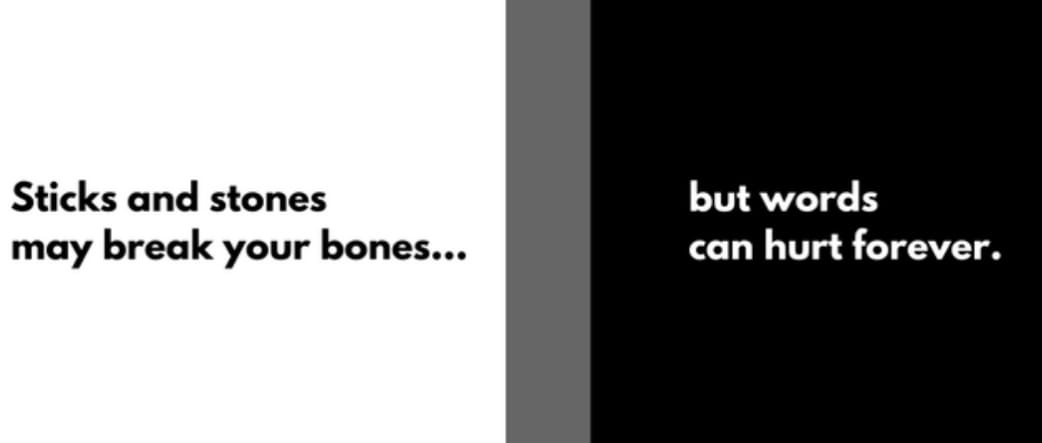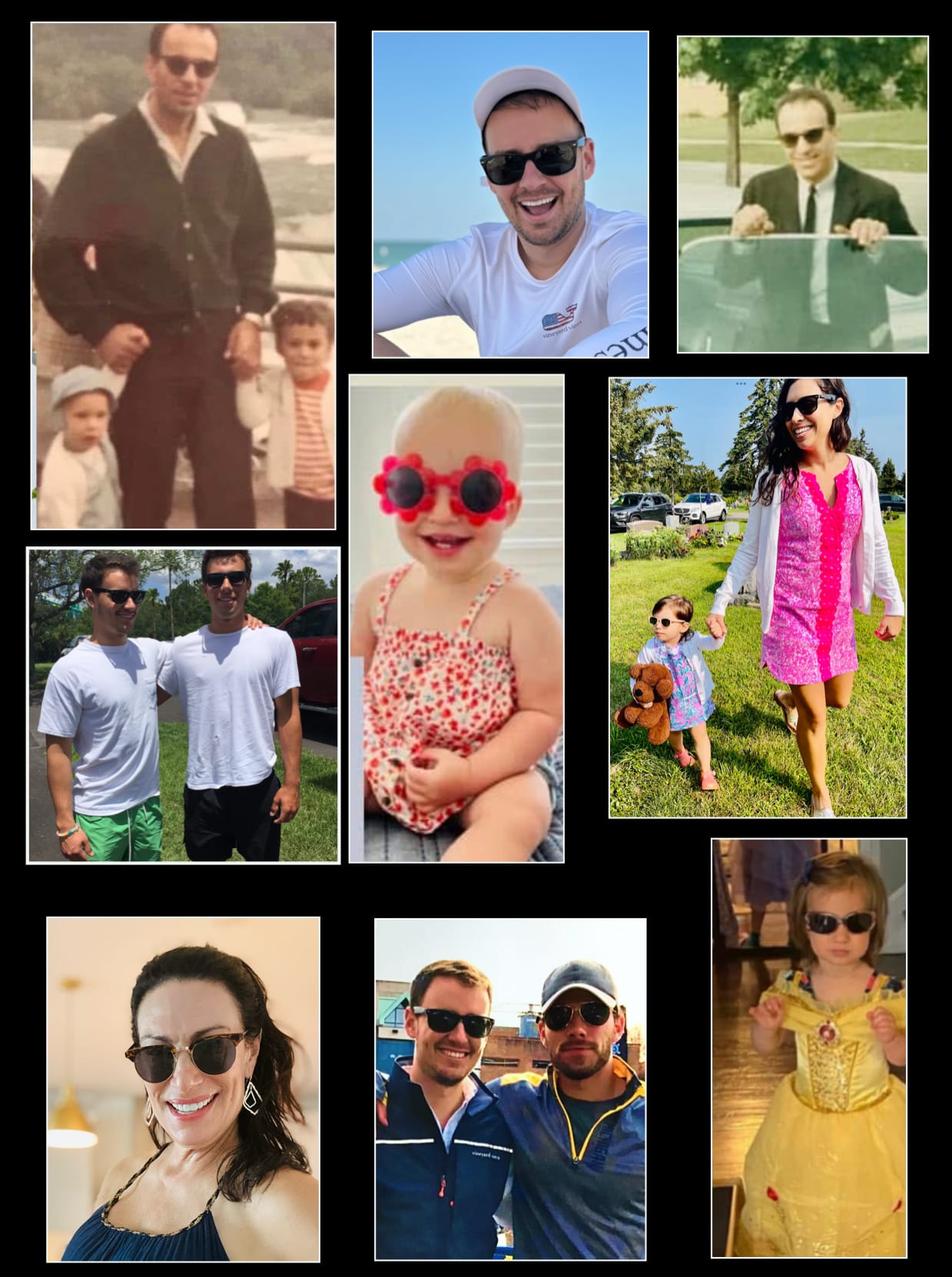When our daughter was about age 4, we read a book of Nursery Rhymes and saying. For some reason, one that stuck with her after she heard it was, “sticks and stones will break my bones but words, but words will never hurt me.” The saying goes back to 1862 and was used to discourage verbal bullying. When my husband read the rhyme to her, he added, “But words WILL hurt.” Why he pressed this point, I don’t remember, but Sasha, and eventually they boys, when they became old enough to hear and remember the saying, also would say the phrase over and over again. I do remember conversations as the kids got in to elementary school about the power of words and that they can be used to lift up or to tear down.

Your children will take their cues from YOU. You can say and a recite all the proverbs, sayings and nursery rhymes, in the world, hoping for your children to learn from these lessons passed down from generation to generation. However, if you say that “sticks and stones maybe break my bones, but words will never me,” and you make a habit of gossiping with a neighbor over coffee regularly, and your children are hearing it all, the lesson is for naught. You can’t say to your child, ‘do as I say, not as I do,” as that is not a very effective learning language. If you want to teach your child the power of positive words, then SPEAK positive words. For example, a conversation that might happen in front of your child, Grandma brought dinner over since Dad had his wisdom teeth taken out. Mom comes home with Dad and Grandma has dropped off dinner. Mom might say when the kids tell her, “Your Grandma brought dinner over? She is so thoughtful. Your Grandmother knows just how to brighten our day. This looks absolutely delicious.” It’s the positive words, the gratitude. It’s saying aloud to your children how much the home cooked meal was appreciated. After dinner you make a quick phone call to let Grandma know how much the meal and kind gesture was appreciated.
Every one of us is born with unique qualities and characteristics that make us different from everyone else. Yet, there are still behaviors and attitudes that are taught-it’s the whole ‘nature vs. nurture. Teaching a child how to be grateful and kind from early on, will result in kindness and gratitude being just ‘how they roll,’ or it becomes their ‘nature.’ If you hear your child and a friend embarking on mean behavior, listen carefully to decider what exactly your are hearing. If it is unnecessary mean, nip it in the bud and redirect the conversation. I once heard two sisters on a high school sports team on the way back from a tournaments trashing mostly every player on the team, besides those in our car. I stopped the car and asked them to keep their ‘man girls’ comments to their self, and said, “ladies, if you can’t find something nice to say, pleases say nothing at all.” Interestingly, I met their Mom a few weeks later and after observing her, I had an idea as to where the behavior had been learned.
Just as important as teaching kids to use their words wisely and the power of words, is to teach a child HOW to apologize when they hurt someone’s feelings and why it’s important to apologize. “I’m sorry you feel that way” is NOT an apology. Teach your child that saying they are sorry when they are not is not right either. A truly sincere apology is very meaningful and can repair a broken relationship allowing both people to move on with forgiveness. Explain that we sometimes say things we shouldn’t, we mess up and when we do, asking for forgiveness allows us to let that person know that we are sorry we hurt them. For the person who was wronged or insulted, it’s important to allow they person to apologize so that they don’t hold on to the anger.
Lots of good lessons here in this one…Lessons that can help lead to many Great Days 🍎







